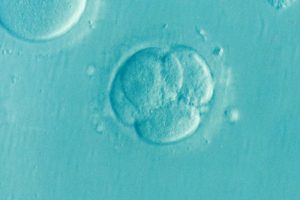
Vitamins and Supplements During Pregnancy
Just as your body’s nutritional needs increase by around 300 additional calories per day while pregnant, your body also needs greater amounts of vitamins to ensure your baby gets all of the nutrients he or she needs to grow and develop.
In addition to maintaining a healthy diet packed full of nutrients, finding the right prenatal vitamins and supplements is one of the easiest ways to get those extra vitamins your body needs but may not be getting from your daily food intake.

Of course, it is best to speak with your doctor or OBGYN to determine which prenatal vitamins or supplements are best for you and your baby.
According to the American Pregnancy Association, the following daily allowance of vitamins and nutrients (obtained through diet and prenatal vitamins) is generally recommended during pregnancy:
Calcium
Folate (or Folic acid)
Iodine
Iron
Vitamin A
Vitamin B1 (Thiamin)
Vitamin B2 (Riboflavin)
Vitamin B3 (Niacin)
Vitamin B6 (Pyridoxine)
Vitamin B12
Vitamin C
Vitamin D
Vitamin E
Zinc
1000-1300 mg
400-800 mcg
(1000 mcg max)
150 mcg
27 mg
700 mcg
(1000 mcg max)
1.4 mg
1.4 mg
18 mg
(35 mg max)
1.9 mg
(100 mg max)
2.6 mcg
70-85 mg
(2000 mg max)
400-600 IU
(4000 IU max)
10 mg
(1000 mg max)
11-13 mg
Calcium
Folate (or Folic acid)
Iodine
Iron
Vitamin A
Vitamin B1 (Thiamin)
Vitamin B2 (Riboflavin)
Vitamin B3 (Niacin)
Vitamin B6 (Pyridoxine)
Vitamin B12
Vitamin C
Vitamin D
Vitamin E
Zinc
1000-1300 mg
400-800 mcg (1000 mcg max)
150 mcg
27 mg
700 mcg (1000 mcg max)
1.4 mg
1.4 mg
18 mg (35 mg max)
1.9 mg (100 mg max)
2.6 mcg
70-85 mg (2000 mg max)
400-600 IU(4000 IU max)
10 mg (1000 mg max)
11-13 mg
Research studies have also found that taking DHA and EPA supplements can help reduce the risk of premature birth and improve your baby’s growth, namely brain and eye development. DHA and EPA are types of omega-3 fatty acid and the American Pregnancy Association recommends 300 mg of DHA per day when pregnant and a blend of 625 mg DHA with 410 mg EPA daily if you breastfeed.
However, it is always important to discuss your daily nutrition needs with your healthcare provider prior to taking any vitamins or supplements, as simple blood work will indicate any possible vitamin deficiencies.
While the body is known to flush out excess vitamins, this is not always the case. Vitamins A, B6, C, D, and E may be dangerous for you or your baby if taken in high doses.
Browse all Articles:
Trying to Conceive
Pregnancy
Motherhood
Self Care
SingleMomsByChoice.org is run by single moms by choice for single moms by choice, dedicated to helping educate, enlighten and empower women who are thinking about or who have decided to have a child “on their own” through donor insemination, egg or embryo donation, adoption or other assisted means.


